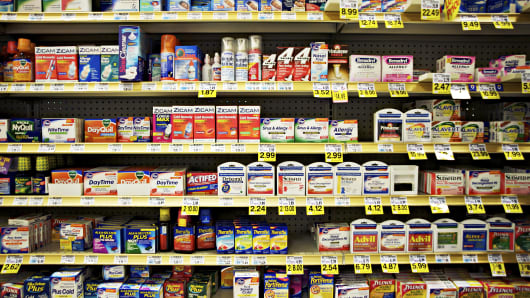The American pharmaceutical industry is deeply disappointed with the intellectual property rules for new drugs in the Trans Pacific Partnership, the biggest American trade deal in a generation. Senator Orrin Hatch, a longtime champion for the industry, declared in October that "this deal appears to fall woefully short." Without Republican support, President Obama's hopes for Congressional passage of his legacy-defining trade deal are effectively dead.
Why is the drug industry — and its favorite senator — so unhappy? It boils down to data protection, a form of regulatory protection for new drugs that is separate from patent protection. In the U.S., complex drugs based on biotechnology (known in the industry as "biologics") are protected from generic competition for a minimum of 12 years. This is the strongest protection for biologics in the world. The industry wanted to incorporate this standard into TPP in order to incentivize the development of these costly and complex cures.
The industry is absolutely right to stress the value of pharma innovation. Not long ago, an HIV infection was a death sentence. Thanks to pharma innovation, millions of HIV-positive people are living normal lives. Today's pharma innovators are finding new ways to attack cancer and other killers – and some of the best potential treatments are biologics. Finding cures for these diseases is so important for humankind that relatively strong IP for innovative drugs is well worth the price.
But is the industry right to claim that anything less than 12 years of data protection for biologics in TPP will bring an innovation apocalypse? No. Biologics are complex and costly to create. But complexity cuts both ways — clinical trials are generally required to determine whether a generic version of the drug (known as a "biosimilar") will have the same therapeutic impact as the original drug. Chemistry-based generic drugs almost never require such trials, so generic entry is cheap, rapid, and quickly leads to sharp price declines and huge revenue losses for the innovator. Because biosimilars require the time and expense of clinical trials, generic competitors will enter the biologics market later, less frequently, and at a smaller price discount than has been the case in chemistry-based drugs, even after patents and data protection expire. That has been the case so far in western Europe, which has more experience with biosimilars than any other major market.
The industry's hissy fit over data protection for biologics obscures the reality that TPP does more to promote pharmaceutical innovation than any trade agreement in U.S. history. TPP establishes minimum data protection standards where none existed before. New chemistry-based drugs get five years of data protection. Biotech-based new drugs get additional protections that ensure that generic entry is delayed for about eight years. If drug companies find that an already-discovered drug can be used to treat a different disease, they get at least three years of data protection for that new treatment. All but two of America's TPP partners will have to strengthen their existing data protection provisions to conform to the new standards. Indonesia currently has no data protection – but now that Southeast Asia's most populous nation has committed to join TPP, this fast-growing country will also have to implement TPP's strong standards.
As countries develop, they strengthen patents, and TPP will encourage that process by requiring health ministries to expedite resolution of patent disputes before approving new drugs. It extends patent terms when drug companies encounter unreasonable regulatory delays. Finally, TPP requires all member states to protect trade secrets. By strengthening data protection, patents, and trade secrets, TPP will promote and protect pharma innovation for generations to come – unless it is undone by the very industry that stands to be one of its greatest beneficiaries. America's TPP partners were willing to scupper the entire agreement rather than grant 12 years of data protection to biologics. If America's drug industry fails to support TPP, it will have violated a classic rule: "Don't let the perfect be the enemy of the good." In reaching for their perfect scenario, they may not even attain the good scenario.
Many activists and interest groups, at home and abroad, remain bitterly opposed to any period of data protection, much less eight years for biologics. To its enormous credit, the Obama administration has weathered years of scorching criticism from the progressive wing of the president's own party in its successful efforts to negotiate a good deal on pharma IP in the TPP. Leaders of America's pharmaceutical industry should take a deep breath, act like the scientists on which their success has always been based, and face the facts. This is the best deal they are going to get. They should get behind it.
Commentary by Lee Branstetter, a nonresident senior fellow at the Peterson Institute of International Economics and a professor of economics and public policy at Carnegie Mellon University.





